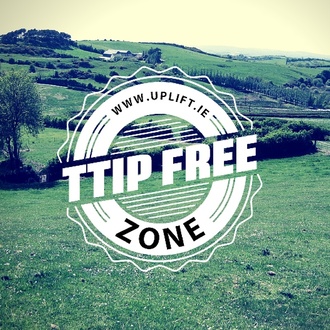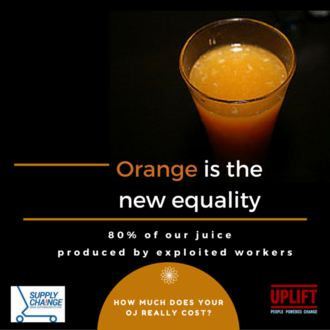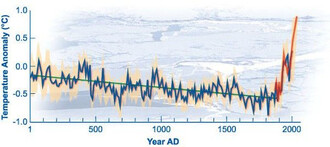- Featured
- Animal Rights
- Anti-racism
- Arts & Culture
- Children
- Climate
- Corporate accountability
- Crime
- Disability rights
- Economic
- Education
- Environment
- Food and Sustainable Production
- Gender Equality
- Governance and Transparency
- Health
- Housing
- LGBT Rights
- Mental health
- Northern Ireland
- Planning
- Privacy and Data Protection
- Rural Inequality
- Social Justice
- Trade
- Transport and Infrastructure
- Workers' Rights
- More
-
Declare Wicklow a TTIP and CETA Free ZoneOur local businesses, environment and democracy are under threat from a trade deal currently being negotiated between the EU Commission and the USA. The deal is called TTIP and could outlaw local authorities’ support of local businesses, allow multinational corporations to sue us if councils deny fracking permits and open up services like water, health and education to privatisation. What’s up for grabs are the rules and regulations that force corporations to abide by standards that protect our health, our rights, our jobs, services and the environment. These regulations for example stop corporations releasing chemicals and products into the market before they are proven to be safe. They also make sure workers get their rights and that local communities are protected from environmental disasters. But if TTIP goes ahead corporations will get to have a say on policies that govern our daily lives - before we or even politicians get to see them. And if they don’t like the rules they will be able to sue governments when they make changes or bring in new policies that could potentially affect their profits. Right now in Canada a fracking company Lone Pine Resources Inc., is suing the government for its decision to not allow fracking in Quebec. They are able to do this because of an ISDS clause in another trade deal. In Egypt the government was sued by water company Veolia for attempting to bring in a minimum wage. Germany is being sued by Swedish energy company Vatenfall for €4.7 billion because of Germany's decision to phase out nuclear power. TTIP also removes barriers to US companies who want to sell their products in Europe. Right now the sale of US beef in Europe is very limited. Hormone injected beef is banned outright. Hundreds of councils across Europe have already said they don’t want TTIP. Because of people power politicians are waking up to the threat TTIP poses and to the fact that people aren’t going to stand aside and let our democracy and rights be sold off. In addition to that a similar Trade agreement named CETA if the TTPIP fails will deliver a similar agreement between the EU and Canada, with similar legal provisions thus providing a backdoor for the same restrictive legal provisions to be implemented: CETA summary: http://www.ase.tufts.edu/gdae/Pubs/wp/16-03CETA_ES.pdf31 of 100 SignaturesCreated by Darren Morrison
-
Mayo Against Salmon FarmingThe salmon farming industry is detrimental to wild salmon, peoples health and the ecology of the bays where the cages are. Sea lice from the salmon cages easily infest little salmon making their journey to sea, and many don't return to breed. This massively effects angling tourism, coupled with escaped salmon who spread disease. The antibiotics and food used to farm these "organic" salmon is far from healthy. The E.U definition of "organic" is shocking, and I have never in my life heard of antibiotics growing in a field! Mussels and other native life is effected by the salmon farms, they must be stopped! For more information or to help the campaign further contact Tom Moran via the facebook page: https://www.facebook.com/pbpcastlebar Thank you!105 of 200 SignaturesCreated by Paddy Kilbane
-
NO TO NATIONAL PAY BY WEIGHT CHARGESIts important because it will encourage dumping. The bin system is fine. Taxes are being put on ordinary people who are already doing their best to help with the rubbish by putting them into bins already as well as recycling their products. Its not right to impose such charges. We are being forced to pay a polluters charge how dare they. Its the shops have to reduce this packaging on products sold in their shops as we are paying for it now.20 of 100 SignaturesCreated by Noreen Doherty
-
Make Cavan A TTIP Free ZoneOur local businesses, environment and democracy are under threat from a trade deal currently being negotiated between the EU Commission and the USA. The deal is called TTIP and could outlaw local authorities’ support of local businesses, allow multinational corporations to sue us if councils deny fracking permits and open up services like water, health and education to privatisation. What’s up for grabs are the rules and regulations that force corporations to abide by standards that protect our health, our rights, our jobs, services and the environment. These regulations for example stop corporations releasing chemicals and products into the market before they are proven to be safe. They also make sure workers get their rights and that local communities are protected from environmental disasters. But if TTIP goes ahead corporations will get to have a say on policies that govern our daily lives - before we or even politicians get to see them. And if they don’t like the rules they will be able to sue governments when they make changes or bring in new policies that could potentially affect their profits. Right now in Canada a fracking company Lone Pine Resources Inc., is suing the government for its decision to not allow fracking in Quebec. They are able to do this because of an ISDS clause in another trade deal. In Egypt the government was sued by water company Veolia for attempting to bring in a minimum wage. Germany is being sued by Swedish energy company Vatenfall for €4.7 billion because of Germany's decision to phase out nuclear power. TTIP also removes barriers to US companies who want to sell their products in Europe. Right now the sale of US beef in Europe is very limited. Hormone injected beef is banned outright. Hundreds of councils across Europe have already said they don’t want TTIP. Because of people power politicians are waking up to the threat TTIP poses and to the fact that people aren’t going to stand aside and let our democracy and rights be sold off.53 of 100 SignaturesCreated by Noreen Porter
-
Make Monaghan a TTIP Free ZoneOur local businesses, environment and democracy are under threat from a trade deal currently being negotiated between the EU Commission and the USA. The deal is called TTIP and could outlaw local authorities’ support of local businesses, allow multinational corporations to sue us if councils deny fracking permits and open up services like water, health and education to privatisation. What’s up for grabs are the rules and regulations that force corporations to abide by standards that protect our health, our rights, our jobs, services and the environment. These regulations for example stop corporations releasing chemicals and products into the market before they are proven to be safe. They also make sure workers get their rights and that local communities are protected from environmental disasters. But if TTIP goes ahead corporations will get to have a say on policies that govern our daily lives - before we or even politicians get to see them. And if they don’t like the rules they will be able to sue governments when they make changes or bring in new policies that could potentially affect their profits. Right now in Canada a fracking company Lone Pine Resources Inc., is suing the government for its decision to not allow fracking in Quebec. They are able to do this because of an ISDS clause in another trade deal. In Egypt the government was sued by water company Veolia for attempting to bring in a minimum wage. Germany is being sued by Swedish energy company Vatenfall for €4.7 billion because of Germany's decision to phase out nuclear power. TTIP also removes barriers to US companies who want to sell their products in Europe. Right now the sale of US beef in Europe is very limited. Hormone injected beef is banned outright. Hundreds of councils across Europe have already said they don’t want TTIP. Because of people power politicians are waking up to the threat TTIP poses and to the fact that people aren’t going to stand aside and let our democracy and rights be sold off.243 of 300 SignaturesCreated by Emily Duffy

-
Make Orange Juice Fair!While retailers across Europe make enormous profits from the sale of store brand (own brand) orange juice, the majority of workers and farmers who harvest and process the fruit and its juice live in bitter poverty. Orange juice production is also utterly destructive to the environment; the industry is characterised by excessive use of pesticides.22 of 100 SignaturesCreated by Shauna Kelly
-
Create a Citizens' Convention for a Post-Carbon IrelandSince pre-industrial times, our world has warmed by a global average of almost 1 degree celsius, due primarily to greenhouse gas pollution from human activities. This has already triggered serious planetary-scale climate disruption, and is having devastating humanitarian impacts on vulnerable communities in diverse geographical regions. But we are not powerless. We can still act: both to limit the speed and ultimate severity of global climate impacts, and to brace our own society for the potentially drastic shocks ahead due to the climate disruptions we have already initiated. This will require urgent and radical societal transformation. That can only happen with the willing engagement and support of the people. We need a genuine, sustained process that allows every single citizen and community in Ireland to fully consider the range and nature of the changes we face, and to advance policies and actions that are commensurate with them. Only in this way can we hope to create the unity and solidarity that is essential to create a strong, resilent, and genuinely sustainable society. We need a Citizens' Convention for a Post-Carbon Ireland.1,110 of 2,000 SignaturesCreated by Barry McMullin
-
Declare Clare a TTIP Free ZoneOur local businesses, environment and democracy are under threat from a trade deal currently being negotiated between the EU Commission and the USA. The deal is called TTIP and could outlaw local authorities’ support of local businesses, allow multinational corporations to sue us if councils deny fracking permits and open up services like water, health and education to privatisation. What’s up for grabs are the rules and regulations that force corporations to abide by standards that protect our health, our rights, our jobs, services and the environment. These regulations for example stop corporations releasing chemicals and products into the market before they are proven to be safe. They also make sure workers get their rights and that local communities are protected from environmental disasters. But if TTIP goes ahead corporations will get to have a say on policies that govern our daily lives - before we or even politicians get to see them. And if they don’t like the rules they will be able to sue governments when they make changes or bring in new policies that could potentially affect their profits. Right now in Canada a fracking company Lone Pine Resources Inc., is suing the government for its decision to not allow fracking in Quebec. They are able to do this because of an ISDS clause in another trade deal. In Egypt the government was sued by water company Veolia for attempting to bring in a minimum wage. Germany is being sued by Swedish energy company Vatenfall for €4.7 billion because of Germany's decision to phase out nuclear power. TTIP also removes barriers to US companies who want to sell their products in Europe. Right now the sale of US beef in Europe is very limited. Hormone injected beef is banned outright. Hundreds of councils across Europe have already said they don’t want TTIP. Because of people power politicians are waking up to the threat TTIP poses and to the fact that people aren’t going to stand aside and let our democracy and rights be sold off.607 of 800 SignaturesCreated by John Higgins
-
stop the needless culling of fish !fisheries ,lakes ,rivers ,canals across ireland are being targeted by these so called fishermen , they do not care about how many fish they kill or how they kill them , quite often the fish are just left on the bank to die or thrown into hedgerows and ditches , this sort of cruelty could see our sport come under the spotlight of anti bloodsport organisations as well as the damage it can cause to the eco systems of our waters . predator fish eat diseased and sickly fish ,this stops the spread of disease to other fish and helps keep our waters healthy , its a natural way for waters to deal with disease and over breeding of fish stocks , killing these predators disturbs that balance and throws the ecosystem out of kilter12 of 100 SignaturesCreated by Eric Davies
-
Equal rights, proper pay and national job discription for Health Care Assistants and carersAs I am both a health care assistant and help my partner with her parents who need full time care, she only gets €109 a week which is shambolic for all she does and saves the country like all other carers who look after their children, parents, and young adults with disabilities, they need more support as medication, treatment and other outgoings are very expensive and it is unrealistic to expect these people to live on such a small allowance.12 of 100 SignaturesCreated by Brendan Gallagher
-
Access to Nutrition in Direct ProvisionDirect Provision Centres are the accommodation provided to asylum seekers by the state (Citizensinformation.ie, 2021). A feature of the majority of these centres is that food is only available at set times, a breakfast, lunch, and evening meal (Citizensinformation.ie, 2021). This is highly problematic as the food is often inedible to the point that residents chose to skip the meal, meaning they are forced to go hungry (Barry, 2014). Similarly, any residents partaking in religious holidays such as Ramadan have no access to food at night when their fast is broken (Barry, 2014). Food is a human right, as is the availability and accessibility of it (OHCHR, 2021). By making healthy snacks constantly available to residents in Direct Provision Centres, many issues would be addressed in an easy and cost effective way. However, the emphasis is on healthy. Currently there are strict limits on access to fruit, and the food served is very high in salt, sugar, and fat (Barry, 2014). This cannot be the case for the accessible snacks as it would defeat the purpose. The White Paper was released in February and contains the government’s plan to abolish the Direct Provision system. While this is undoubtably a great step in the right direction, change is unlikely to occur before 2024 and these issues need to be addressed now. This petition is a call on Minister O’Gorman to enforce change in these centres immediately. The following links contain further, more detailed, information regarding the numerous nutritional issues faced by Asylum Seekers in Ireland: https://www.directprovision.org/copy-of-voices-in-dp https://nascireland.org/sites/default/files/WhatsFoodFINAL.pdf References: Barry, K. (2014) What’s Food Got To Do With It: Food Experiences of Asylum Seekers in Direct Provision. Nasc, the Irish Immigrant Support Centre. Citizensinformation.ie (2021) Direct provision system. Citizensinformation.ie. Available at: https://www.citizensinformation.ie/en/moving_country/asylum_seekers_and_refugees/services_for_asylum_seekers_in_ireland/direct_provision.html OHCHR | OHCHR and the right to food (2021). Available at: https://www.ohchr.org/En/Issues/ESCR/Pages/food.aspx111 of 200 SignaturesCreated by Aoibhinn Boyd
-
Close The meat plants for covid 19Covid19 clusters in the meat industry is risking human lives. No amount of food is worth that. We must protect workers and allow the industry time to adapt while workers recover with pay. Imagine the fear the workers are living under and their familes at the taught of contamination with covid 19 no one should have to work under that stress. Meat plant workers are vitally important in our economic factors it is time we showed them that we care enough to not risk thier lives19 of 100 SignaturesCreated by Anna Doyle

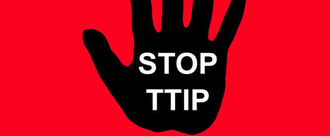
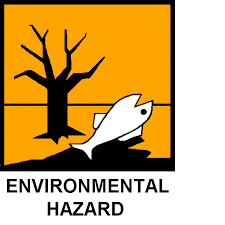
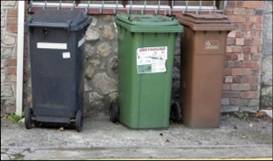
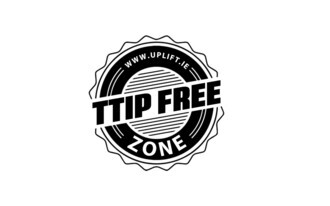.jpg)
